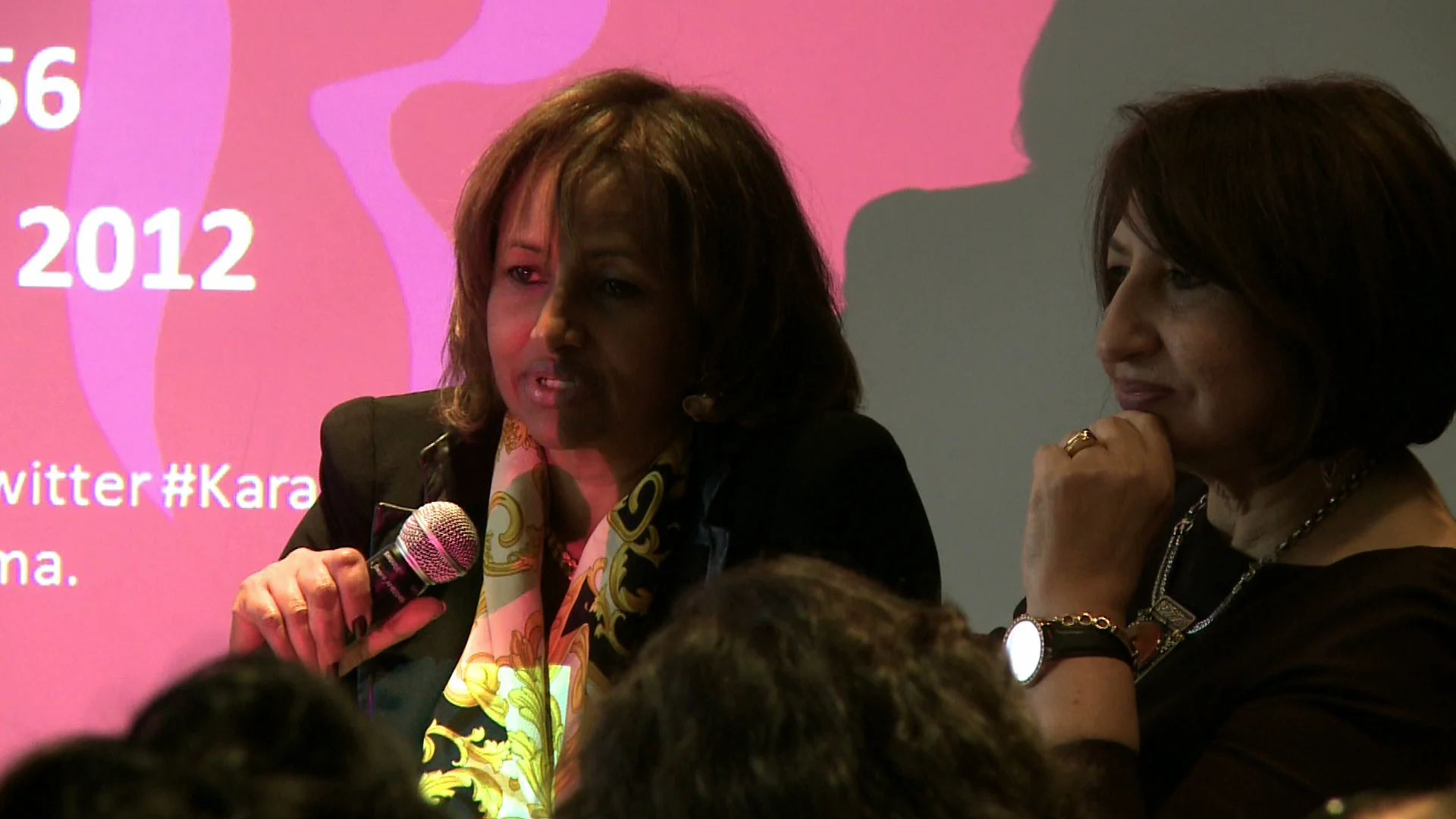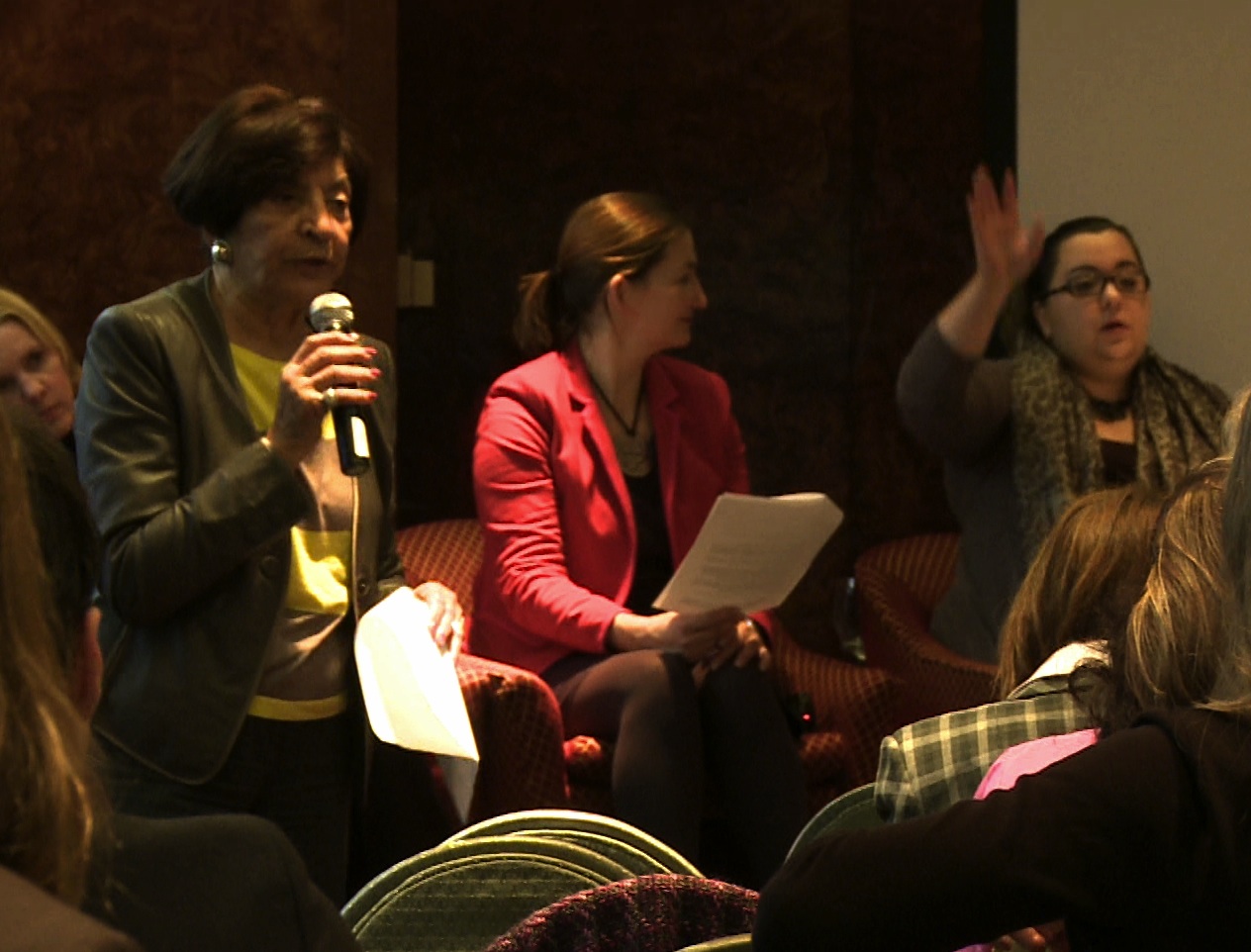The Challenges and Prospects of Gender Equality: Conference Report & Final Recommendations
Karama’s one-day conference on “The Challenges and Prospects of Gender Equality” in New York in early March set forth concrete and strategic recommendations for future action. The final report and recommendations were released this month, sharing perspectives and recommendations from high-level regional and international activists, experts, policymakers, and diplomats and establishing advocacy priorities for women’s issues in new and existing constitutions.
CSW2
Since the inception of the Arab uprisings, the situation in the region for women has dramatically shifted. During the revolution, women were acknowledged and treated as esteemed partners in fueling much needed change in the region. Without their courage, perseverance, planning, and commitment, the revolutions wouldn’t have happened as they did, with initial victories in Egypt, Tunis, and Libya. Women worked in solidarity with men in supporting the ideals of the revolution when communicating their demands for freedom, justice, and dignity. However, following the uprisings, women quickly saw themselves marginalized from the transitional and post-revolution governments and processes. Furthermore, they saw hard-won rights come under question, for instance the marriage law in Egypt and the polygamy law in Libya. The backlash was not just legal, however. Women also faced violence and harassment that felt at once at odds with the values of the revolution they themselves had helped to achieve.
CWS_Karama_2
Karama and its delegation organized three panels to address this new landscape for women’s rights post-revolution, promoting discussion on what the priorities for women in the region should be and strategies to lobby for support and reform based on these areas. Speakers and delegates agreed that successes for women will depend on their collective strength and how well organized they are to elevate their voices, organize and promote campaigns for reform and inclusion, reach political candidates, and use the media. Women’s organizations and individual activists, academics, and other key players must work together to ensure inclusion and lobby for adoption of gender-sensitive articles in the constitution, but the work must go beyond seeking and sealing the adoption of such articles. Monitoring mechanisms and groups must be developed in order to ensure that these articles are enforced and upheld.
CWS_Karama_8-2
The role of women in promoting peace and prosperity was a key point of emphasis at the conference. It is agreed that women are central to alleviating the deep economic crisis afflicting the region and their empowerment must be a priority area for funding and programming. Women are also essential to building peace and sustaining it across the region. It is proven to be advantageous to have women peacekeepers and decision-makers involved, particularly with regard to their ability to reduce chaos and address the needs of girls and women, who are less comfortable seeking help, advocacy, or refuge from male peacekeepers. UN SCR 1325 and 1820 are particularly important mechanisms in enforcing women’s role in peacemaking and protecting women and girls from situations of violence or vulnerability perpetuated during times of war.
Across all topics, there was recognition that the movement cannot afford to be exclusive. Women, men, and youth from all walks of life and differing perspectives—conservative to liberal—must be included in dialogues on core issues effecting women in the region in order to begin building bridges, changing old dynamics, and stimulating reform and progress in legal and social frameworks.
Karama’s one-day conference was held on March 2 in New York. It featured three separate panels, inciting discussion and exchange on women’s current situations in the region as a result of the Arab uprisings, challenges and threats in the new political landscape and strategies to continue progress for women’s rights in the context of Islamist electoral victories; and demanding accountability for implementing resolutions 1325 and 1820 on women, peace, and security in the Arab region.
For the full conference report and recommendations, please click the link below.
Images 2012 © Africa Interactive
Attachment
Size
1 MB



